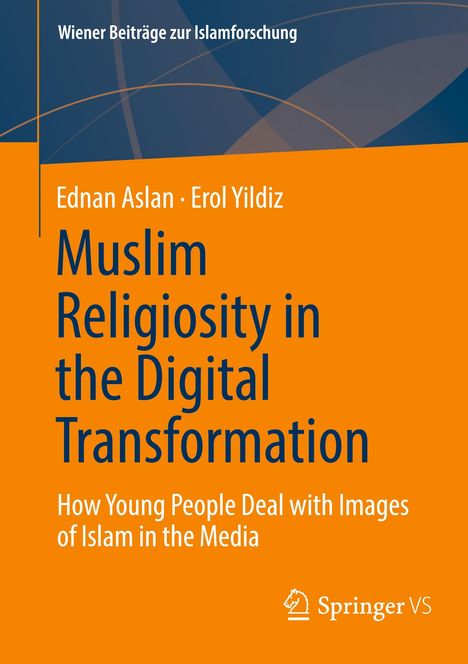Erol Yildiz: Muslim Religiosity in the Digital Transformation, Kartoniert / Broschiert
Muslim Religiosity in the Digital Transformation
- How young people deal with images of Islam in the media
(soweit verfügbar beim Lieferanten)
- Verlag:
- Springer Fachmedien Wiesbaden, 10/2024
- Einband:
- Kartoniert / Broschiert, Paperback
- Sprache:
- Englisch
- ISBN-13:
- 9783658456610
- Artikelnummer:
- 12052645
- Umfang:
- 236 Seiten
- Gewicht:
- 311 g
- Maße:
- 210 x 148 mm
- Stärke:
- 13 mm
- Erscheinungstermin:
- 30.10.2024
- Hinweis
-
Achtung: Artikel ist nicht in deutscher Sprache!
Klappentext
The effects of social media can be observed particularly in relation to the religious commitment and religious practices of young people - who today are summarized under terms such as "internet generation", "media generation" or "digital natives". Online media exert a major influence on their lives, their understanding of the world, their religious orientations and actions. Their identity constructions, their cultural and religious orientations are closely intertwined with social media. This is precisely where the present study started with the question of what subjective consequences interaction on the social web has for the religious orientations, practices and self-conceptions of Muslim young people in Austria. The focus was on the connections between media use, media images of Islam and lived religiosity. On the one hand, the results show that the use of social media creates objective spaces of opportunity that can go hand in hand with an expansion of individual scope for action, whereby religious authority is increasingly being questioned. On the other hand, the study also shows that the use of digital media can also lead to a narrowing of individual religious orientations.
Biografie (Erol Yildiz)
Erol Yildiz (Prof. Dr.) lehrt interkulturelle Bildung und Migration an der Alpen-Adria-Universität Klagenfurt. Seine Schwerpunkte sind Migrationsforschung, Interkulturelle Bildung und Urbanität.Biografie (Ednan Aslan)
Univ. Prof. Aslan, Ednan, geb. 1959 in Bayburt, ist seit 2006 Leiter der Forschungseinheit "Islamische Religionspädagogik" des Instituts für Bildungswissenschaft der Universität Wien und des neu entwickelten Masterstudiums "Islamische Religionspädagogik", das an der Universität Wien zur Ausbildung von IslamlehrerInnen für die Höheren Schulen eingerichtet wurde. Seine Forschungsschwerpunkte liegen im Bereich Didaktik des Islamischen Religionsunterrichtes (IRU), vor allem Koran im IRU, Methoden des IRU, Lehrplanentwicklung und muslimisches Leben in Europa.


